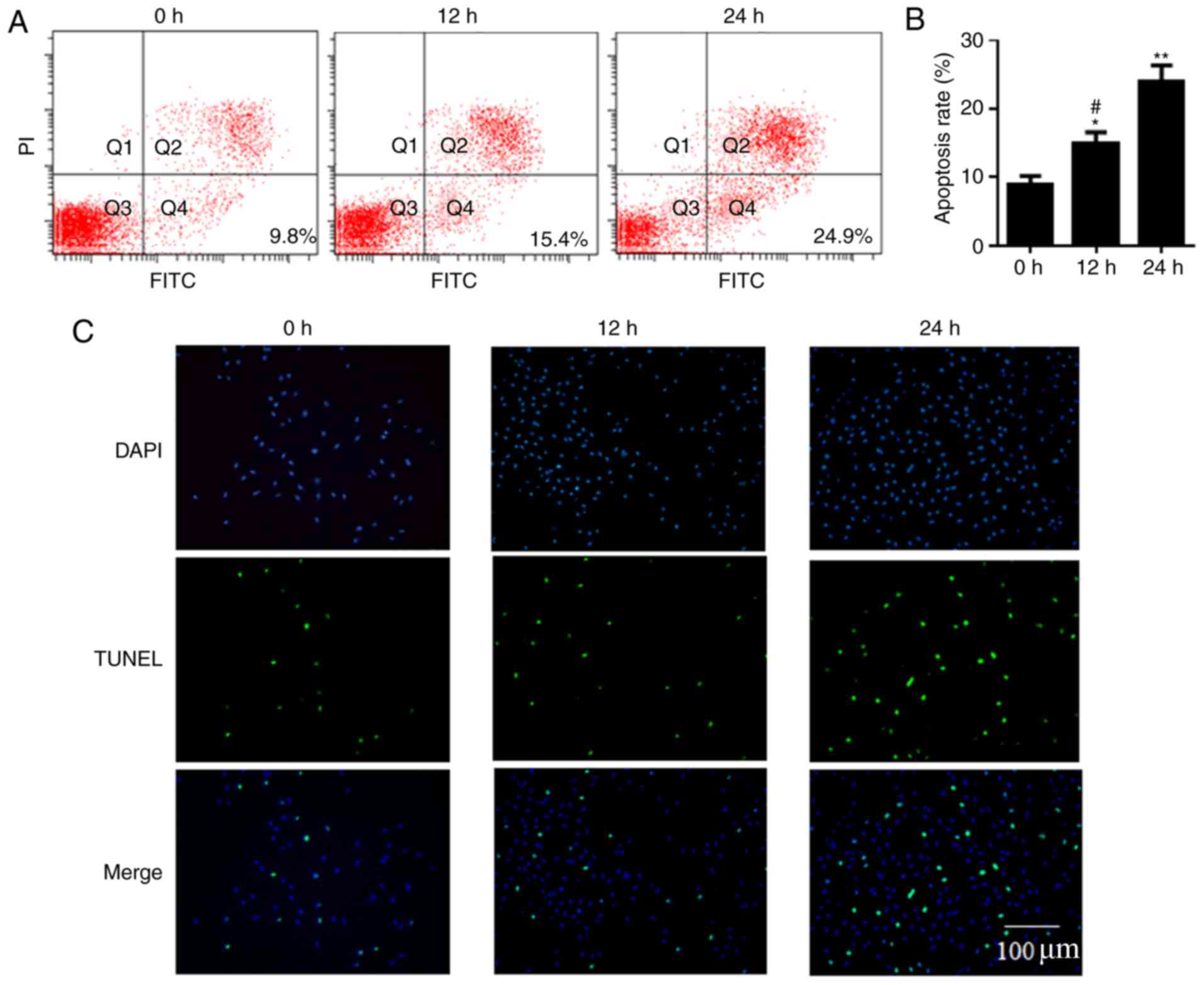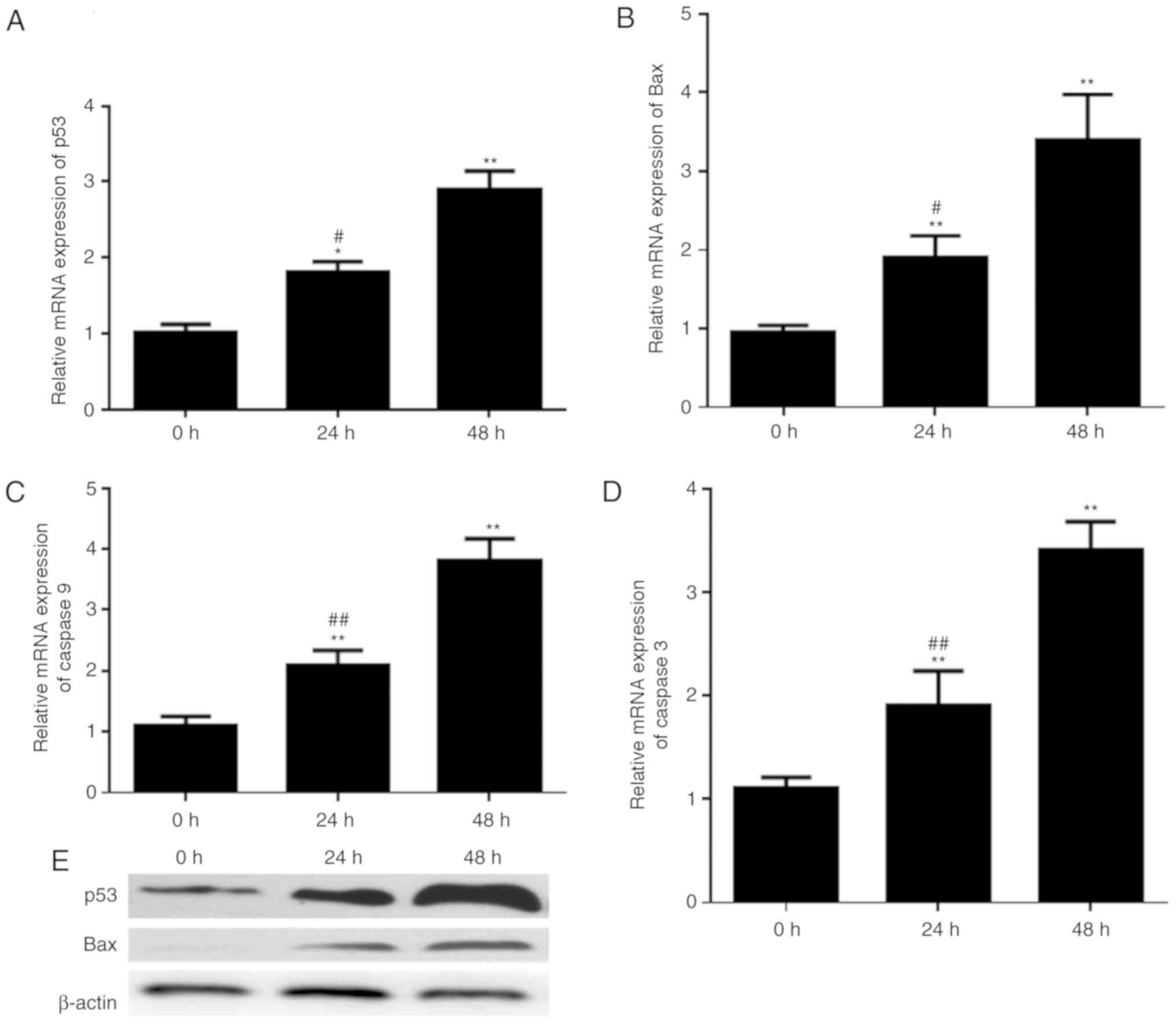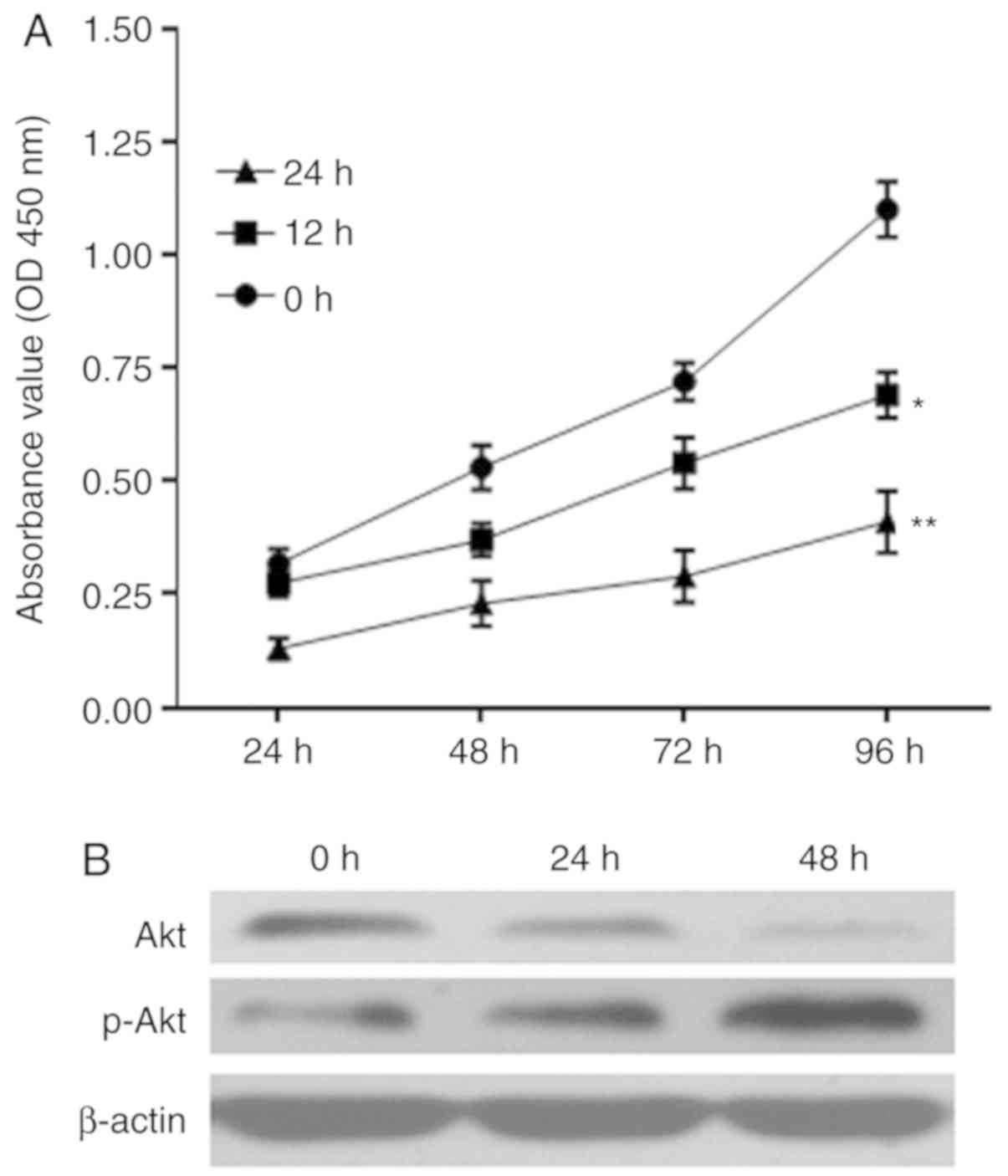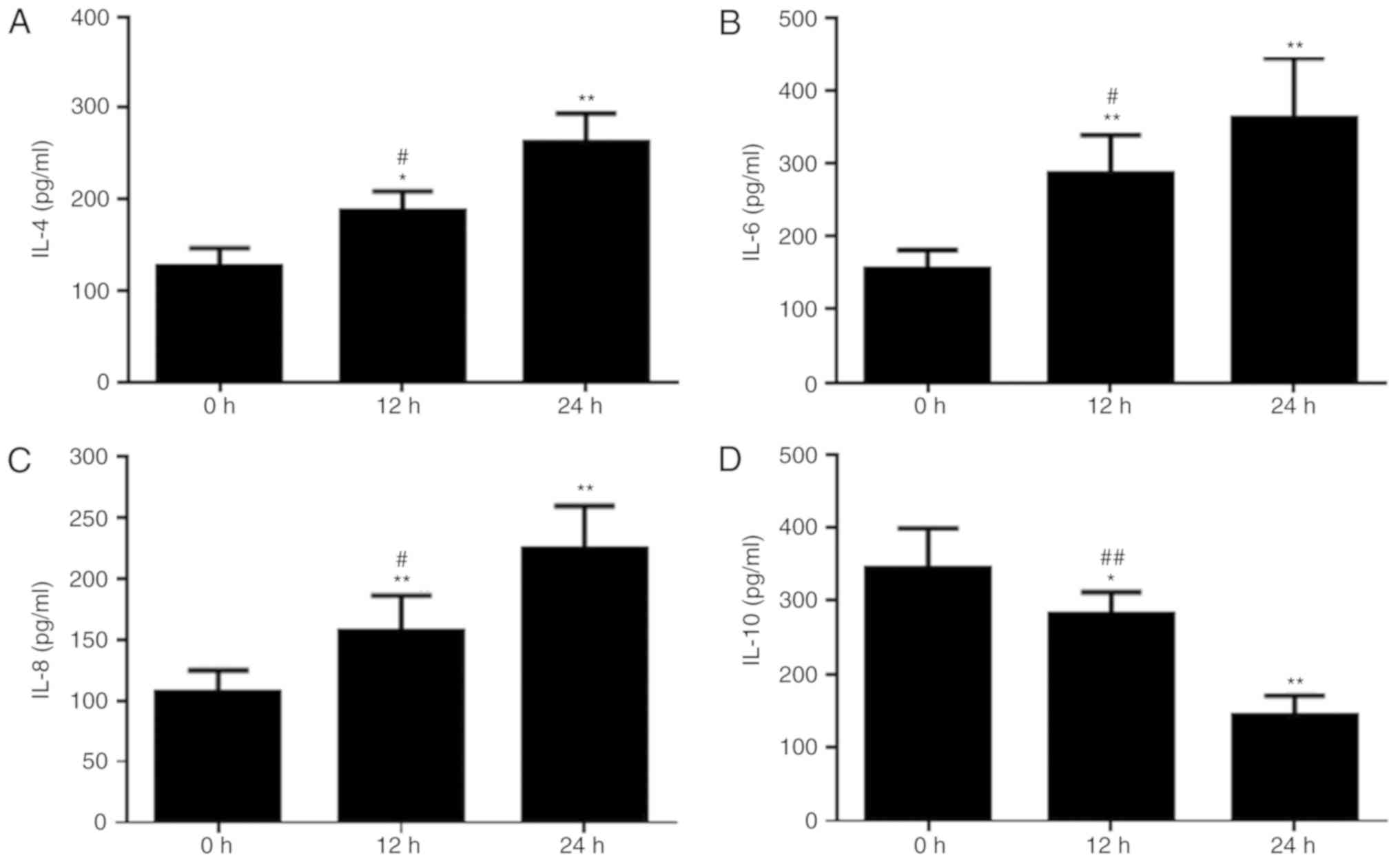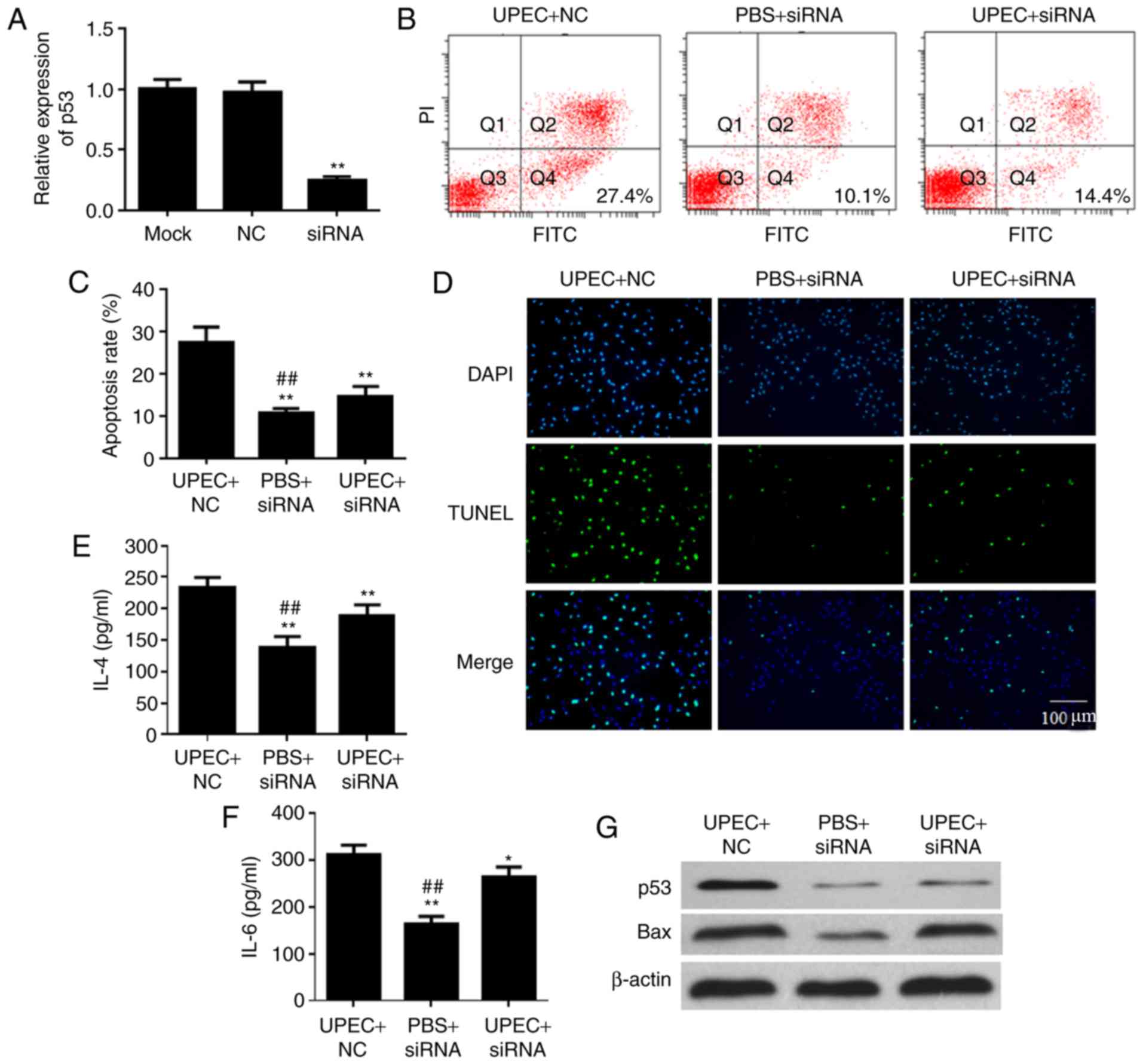|
1
|
Ali I, Shabbir M and Noor Ul I:
Antibiotics susceptibility patterns of uropathogenic E. coli with
special reference to fluoroquinolones in different age and gender
groups. J Pak Med Assoc. 67:1161–1165. 2017.PubMed/NCBI
|
|
2
|
Forsyth VS, Armbruster CE, Smith SN,
Pirani A, Springman AC, Walters MS, Nielubowicz GR, Himpsl SD,
Snitkin ES and Mobley HL: Rapid growth of uropathogenic Escherichia
coli during human urinary tract infection. MBio. 9(pii): e00186–18.
2018.PubMed/NCBI
|
|
3
|
Basu S and Mukherjee M: Incidence and risk
of co-transmission of plasmid-mediated quinolone resistance and
extended-spectrum β-lactamase genes in fluoroquinolone-resistant
uropathogenic Escherichia coli: A first study from Kolkata, India.
J Glob Antimicrob Resist. 14:217–223. 2018. View Article : Google Scholar : PubMed/NCBI
|
|
4
|
Boehm BJ, Colopy SA, Jerde TJ, Loftus CJ
and Bushman W: Acute bacterial inflammation of the mouse prostate.
Prostate. 72:307–317. 2012. View Article : Google Scholar : PubMed/NCBI
|
|
5
|
Seo MY, Im SJ, Gu NY, Kim JH, Chung YH,
Ahn MH and Ryu JS: Inflammatory response of prostate epithelial
cells to stimulation by Trichomonas vaginalis. Prostate.
74:441–449. 2014. View Article : Google Scholar : PubMed/NCBI
|
|
6
|
Longhi C, Comanducci A, Riccioli A, Ziparo
E, Marazzato M, Aleandri M, Conte AL, Lepanto MS, Goldoni P and
Conte MP: Features of uropathogenic Escherichia coli able to invade
a prostate cell line. New Microbiol. 39:146–149. 2016.PubMed/NCBI
|
|
7
|
Wagenlehner FM, Pilatz A, Bschleipfer T,
Diemer T, Linn T, Meinhardt A, Schagdarsurengin U, Dansranjavin T,
Schuppe HC and Weidner W: Bacterial prostatitis. World J Urol.
31:711–716. 2013. View Article : Google Scholar : PubMed/NCBI
|
|
8
|
Ho CH, Fan CK, Yu HJ, Wu CC, Chen KC, Liu
SP and Cheng PC: Testosterone suppresses uropathogenic Escherichia
coli invasion and colonization within prostate cells and inhibits
inflammatory responses through JAK/STAT-1 signaling pathway. PLoS
One. 12:e01802442017. View Article : Google Scholar : PubMed/NCBI
|
|
9
|
Bilancio A, Bontempo P, Di Donato M, Conte
M, Giovannelli P, Altucci L, Migliaccio A and Castoria G: Bisphenol
A induces cell cycle arrest in primary and prostate cancer cells
through EGFR/ERK/p53 signaling pathway activation. Oncotarget.
8:115620–115631. 2017. View Article : Google Scholar : PubMed/NCBI
|
|
10
|
Hong SH, Lee DH, Lee YS, Jo MJ, Jeong YA,
Kwon WT, Choudry HA, Bartlett DL and Lee YJ: Molecular crosstalk
between ferroptosis and apoptosis: Emerging role of ER
stress-induced p53-independent PUMA expression. Oncotarget.
8:115164–115178. 2017. View Article : Google Scholar : PubMed/NCBI
|
|
11
|
Choi SE, Park YS and Koh HC:
NF-κB/p53-activated inflammatory response involves in
diquat-induced mitochondrial dysfunction and apoptosis. Environ
Toxicol. 33:1005–1018. 2018. View Article : Google Scholar : PubMed/NCBI
|
|
12
|
Siegl C and Rudel T: Modulation of p53
during bacterial infections. Nat Rev Microbiol. 13:741–748. 2015.
View Article : Google Scholar : PubMed/NCBI
|
|
13
|
Perletti G, Monti E, Magri V, Cai T,
Cleves A, Trinchieri A and Montanari E: The association between
prostatitis and prostate cancer. Systematic review and
meta-analysis. Arch Ital Urol Androl. 89:259–265. 2017. View Article : Google Scholar : PubMed/NCBI
|
|
14
|
He XY, Xiang C, Zhang CX, Xie YY, Chen L,
Zhang GX, Lu Y and Liu G: p53 in the myeloid lineage modulates an
inflammatory microenvironment limiting initiation and invasion of
intestinal tumors. Cell Rep. 13:888–897. 2015. View Article : Google Scholar : PubMed/NCBI
|
|
15
|
Uehara I and Tanaka N: Role of p53 in the
regulation of the inflammatory tumor microenvironment and tumor
suppression. Cancers (Basel). 10:E2192018. View Article : Google Scholar : PubMed/NCBI
|
|
16
|
Saldaña Z, De la Cruz MA, Carrillo-Casas
EM, Durán L, Zhang Y, Hernández-Castro R, Puente JL, Daaka Y and
Girón JA: Production of the Escherichia coli common pilus by
uropathogenic E. coli is associated with adherence to HeLa and
HTB-4 cells and invasion of mouse bladder urothelium. PLoS One.
9:e1012002014. View Article : Google Scholar : PubMed/NCBI
|
|
17
|
Shen XF, Ren LB, Teng Y, Zheng S, Yang XL,
Guo XJ, Wang XY, Sha KH, Li N, Xu GY, et al: Luteolin decreases the
attachment, invasion and cytotoxicity of UPEC in bladder epithelial
cells and inhibits UPEC biofilm formation. Food Chem Toxicol.
72:204–211. 2014. View Article : Google Scholar : PubMed/NCBI
|
|
18
|
Xu SY, Huang X and Cheong KL: Recent
advances in marine algae polysaccharides: Isolation, structure and
activities. Mar Drugs. 15:E3882017. View Article : Google Scholar : PubMed/NCBI
|
|
19
|
Livak KJ and Schmittgen TD: Analysis of
relative gene expression data using real-time quantitative PCR and
the 2(-Delta Delta C(T)) method. Methods. 25:402–408. 2001.
View Article : Google Scholar : PubMed/NCBI
|
|
20
|
Nicholl MB, Ledgewood CL, Chen X, Bai Q,
Qin C, Cook KM, Herrick EJ, Diaz-Arias A, Moore BJ and Fang Y:
IL-35 promotes pancreas cancer growth through enhancement of
proliferation and inhibition of apoptosis: Evidence for a role as
an autocrine growth factor. Cytokine. 70:126–133. 2014. View Article : Google Scholar : PubMed/NCBI
|
|
21
|
Curley GF, Jerkic M, Dixon S, Hogan G,
Masterson C, O'Toole D, Devaney J and Laffey JG: Cryopreserved,
xeno-free human umbilical cord mesenchymal stromal cells reduce
lung injury severity and bacterial burden in rodent Escherichia
coli-induced acute respiratory distress syndrome. Crit Care Med.
45:e202–e212. 2017. View Article : Google Scholar : PubMed/NCBI
|
|
22
|
Ercumen A, Arnold BF, Naser AM, Unicomb L,
Colford JM Jr and Luby SP: Potential sources of bias in the use of
Escherichia coli to measure waterborne diarrhoea risk in low-income
settings. Trop Med Int Health. 22:2–11. 2017. View Article : Google Scholar : PubMed/NCBI
|
|
23
|
Kow N, Holthaus E and Barber MD: Bacterial
uropathogens and antibiotic susceptibility of positive urine
cultures in women with pelvic organ prolapse and urinary
incontinence. Neurourol Urodyn. 35:69–73. 2016. View Article : Google Scholar : PubMed/NCBI
|
|
24
|
Magistro G, Marcon J, Schubert S, Gratzke
C and Stief CG: Pathogenesis of urinary tract infections: An
update. Urologe A. 56:720–727. 2017.(In German). View Article : Google Scholar : PubMed/NCBI
|
|
25
|
Tarchouna M, Ferjani A, Ben-Selma W and
Boukadida J: Distribution of uropathogenic virulence genes in
Escherichia coli isolated from patients with urinary tract
infection. Int J Infect Dis. 17:e450–e453. 2013. View Article : Google Scholar : PubMed/NCBI
|
|
26
|
Terlizzi ME, Gribaudo G and Maffei ME:
UroPathogenic Escherichia coli (UPEC) infections: Virulence
factors, bladder responses, antibiotic, and non-antibiotic
antimicrobial strategies. Front Microbiol. 8:15662017. View Article : Google Scholar : PubMed/NCBI
|
|
27
|
Johnson JR, Jelacic S, Schoening LM,
Clabots C, Shaikh N, Mobley HL and Tarr PI: The IrgA homologue
adhesin Iha is an Escherichia coli virulence factor in murine
urinary tract infection. Infect Immun. 73:965–971. 2005. View Article : Google Scholar : PubMed/NCBI
|
|
28
|
Eskandari M, Jani S, Kazemi M, Zeighami H,
Yazdinezhad A, Mazloomi S and Shokri S: Ameliorating effect of
ginseng on epididymo-orchitis inducing alterations in sperm quality
and spermatogenic cells apoptosis following infection by
uropathogenic Escherichia coli in rats. Cell J. 18:446–457.
2016.PubMed/NCBI
|
|
29
|
Semczuk A, Ignatov A, Obrzut B, Reventos J
and Rechberger T: Role of p53 pathway alterations in uterine
carcinosarcomas (malignant mixed Müllerian tumors). Oncology.
87:193–204. 2014. View Article : Google Scholar : PubMed/NCBI
|
|
30
|
Xie H and Wang H: PRL-3 promotes breast
cancer progression by downregulating p14ARF-mediated p53
expression. Oncol Lett. 15:2795–2800. 2018.PubMed/NCBI
|
|
31
|
Ali AS, Grönberg M, Federspiel B, Scoazec
JY, Hjortland GO, Grønbæk H, Ladekarl M, Langer SW, Welin S,
Vestermark LW, et al: Expression of p53 protein in high-grade
gastroenteropancreatic neuroendocrine carcinoma. PLoS One.
12:e01876672017. View Article : Google Scholar : PubMed/NCBI
|
|
32
|
Chopra H, Khan Z, Contreras J, Wang H,
Sedrak A and Zhu Y: Activation of p53 and destabilization of
androgen receptor by combinatorial inhibition of MDM2 and MDMX in
prostate cancer cells. Oncotarget. 9:6270–6281. 2017.PubMed/NCBI
|
|
33
|
Liang S, Song Z, Wu Y, Gao Y, Gao M, Liu
F, Wang F and Zhang Y: MicroRNA-27b modulates inflammatory response
and apoptosis during Mycobacterium tuberculosis infection. J
Immunol. 200:3506–3518. 2018. View Article : Google Scholar : PubMed/NCBI
|
|
34
|
Wang W, Bergh A and Damber JE: Increased
p53 immunoreactivity in proliferative inflammatory atrophy of
prostate is related to focal acute inflammation. APMIS.
117:185–195. 2009. View Article : Google Scholar : PubMed/NCBI
|
|
35
|
Liu Y, Shi B, Li Y and Zhang H: Protective
effect of luteolin against renal ischemia/reperfusion injury via
modulation of pro-inflammatory cytokines, oxidative stress and
apoptosis for possible benefit in kidney transplant. Med Sci Monit.
23:5720–5727. 2017. View Article : Google Scholar : PubMed/NCBI
|
|
36
|
Li L, Wang B, Yu P, Wen X, Gong D and Zeng
Z: Medium and long chain fatty acids differentially modulate
apoptosis and release of inflammatory cytokines in human liver
cells. J Food Sci. 81:H1546–H1552. 2016. View Article : Google Scholar : PubMed/NCBI
|
|
37
|
Bai F, Ni B, Liu M, Feng Z, Xiong Q and
Shao G: Mycoplasma hyopneumoniae-derived lipid-associated membrane
proteins induce inflammation and apoptosis in porcine peripheral
blood mononuclear cells in vitro. Vet Microbiol. 175:58–67. 2015.
View Article : Google Scholar : PubMed/NCBI
|
|
38
|
Kumari N, Dwarakanath BS, Das A and Bhatt
AN: Role of interleukin-6 in cancer progression and therapeutic
resistance. Tumour Biol. 37:11553–11572. 2016. View Article : Google Scholar : PubMed/NCBI
|
|
39
|
La Vignera S, Calogero AE, Castiglione R,
D'Agata R, Giammusso B, Condorelli R and Vicari E: IL-6, TNFalfa,
IL-10 in the seminal plasma of patients with bacterial male
accessory gland infections after sequential therapy. Minerva Urol
Nefrol. 60:141–145. 2008.PubMed/NCBI
|
|
40
|
Alotaibi MR, Hassan ZK, Al-Rejaie SS,
Alshammari MA, Almutairi MM, Alhoshani AR, Alanazi WA, Hafez MM and
Al-Shabanah OA: Characterization of apoptosis in a breast cancer
cell line after IL-10 silencing. Asian Pac J Cancer Prev.
19:777–783. 2018.PubMed/NCBI
|















